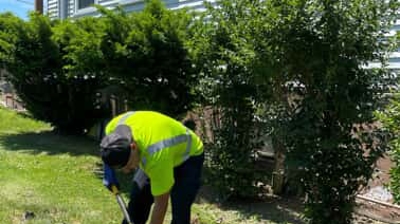It’s hard to believe something as mundane as laundry can cause destruction when it comes to your septic system. Washing several loads in one day forces a large amount of water through your system in a short time, contributing to the potential for wastewater mishaps. Today’s blog focuses on ways to avoid impending damages so you can help your septic system work efficiently from the laundry room.
How Many Loads of Laundry a Day are Safe to Do with a Septic Tank?
Advice varies, but it's recommended to limit your laundry loads to one or two per day if you have a septic system. This helps prevent overloading the system and ensures proper wastewater treatment. It's important to spread out the water usage to allow the septic tank enough time to process the waste effectively. Also, make sure you’re doing full loads to maximize the water use. When too much water passes through the septic tank, it does not have enough time to undergo the separation process to properly filter out solids. This results in clogs that could flow into your leach field causing expensive damages.
Tips for Doing Laundry with a Septic System
1. Clean Out Lint Trays
You may already be doing this with your dryer, but your washing machine has a lint tray too. Laundry debris and lint can escape to your pipes causing severe blockages. These substantial backups can break down your septic system, so take this tip seriously.
2. Choose Septic Safe Laundry Detergent
A common mistake people make is washing toxic chemicals down the drains. Antibacterial ingredients that are found in many household cleaners can hurt your septic system because they kill the good bacteria needed to break down waste in the tank. This applies to your laundry detergent as well. The solution is to opt for all-natural products without bleach or phosphates, and select liquid brands over powders. Powders tend to contain clay and fillers that promote clogs.
So what is the best laundry detergent for septic systems?
A good rule of thumb is to look for laundry detergents labeled "natural," "unscented," "eco-friendly," "biodegradable," "free and clear," or "fragrance free," although there are some fragranced products that are septic safe. The product should be clearly labeled as "septic safe"; when in doubt, look for another brand. Ultimately, you want a biodegradable detergent that has low levels of surfactants. Choosing a concentrated formula is also a good way to limit the amount of detergent that ends up in your septic tank.
Here's a great resource on how to choose the right laundry detergent for your septic system: The 7 Best Laundry Detergents for Septic Systems of 2023
3. Spread Out Laundry Loads
If you have the opportunity to buy a high-efficiency washer, we recommend doing so. These use less water which puts less stress on your septic system. Regardless of the type of appliance you have, you should still spread out your loads. Instead of doing several loads in one day, consider doing one load per day or space out two or three loads if you must do more in a single day.
Clean Clothes with a Clear Conscience
Making simple changes to your laundry routine can make a world of difference with your septic system. Take these suggestions to heart, and you won’t have to worry about your washing machine contributing to septic troubles.
For more helpful advice on appliance wastewater management, contact Wind River Environmental.






